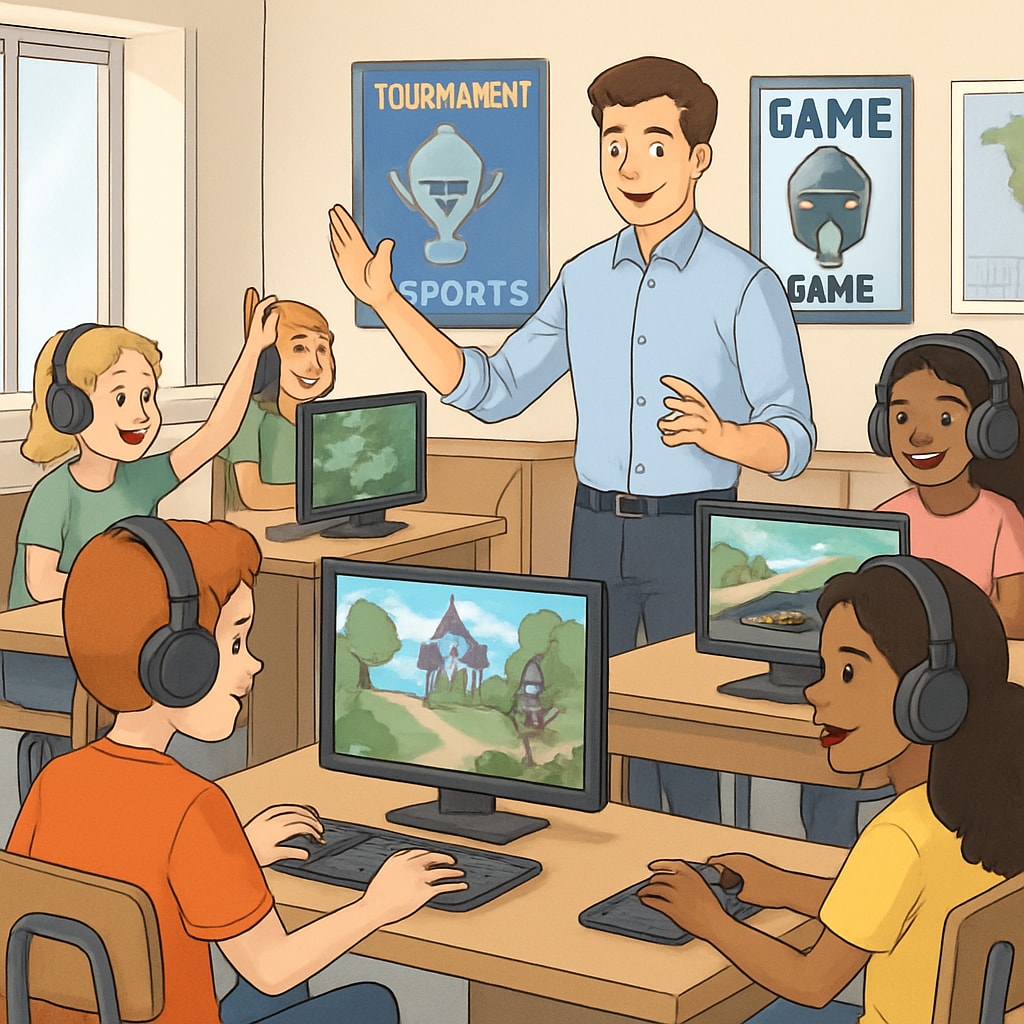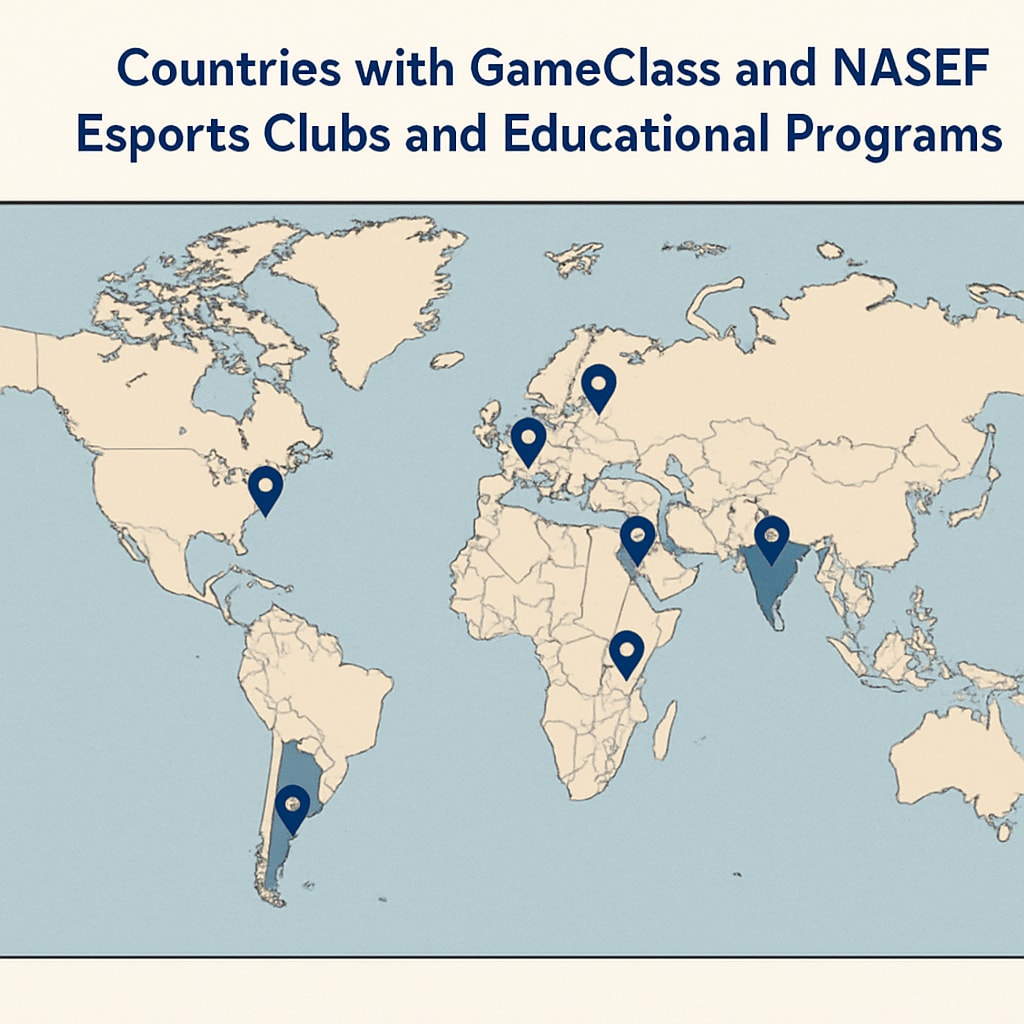GameClass and NASEF (North America Scholastic Esports Federation) are joining forces to redefine the boundaries of K12 education. By integrating esports and game-based learning into classrooms, this groundbreaking partnership aims to enhance student engagement, foster creativity, and build essential 21st-century skills. Esports, traditionally seen as a recreational activity, is now evolving into a powerful educational tool, bridging the gap between entertainment and academics globally.

Esports as a Catalyst for Educational Transformation
The collaboration between GameClass and NASEF is not merely about introducing video games into schools. Instead, it focuses on creating structured educational experiences through esports clubs and game-based curricula. These initiatives help students develop critical skills such as teamwork, problem-solving, and digital literacy, which are vital in today’s rapidly changing world.
For example, game-based learning integrates core academic subjects like math, science, and language arts into interactive gaming environments. Students participating in esports clubs often encounter scenarios requiring strategic thinking and collaboration, making learning both engaging and practical. As a result, educators report increased student involvement and improved academic performance.
Global Reach: GameClass and NASEF’s Strategic Vision
The partnership aims to expand the accessibility of esports education across the globe. Through GameClass’s innovative platform and NASEF’s established esports club networks, students from diverse educational backgrounds can partake in this transformative learning experience. The initiative seeks to bridge gaps in traditional education systems by introducing dynamic, technology-driven methodologies.
Additionally, GameClass and NASEF are working together to train educators on how to effectively integrate esports into their teaching strategies. This includes professional development programs and access to educational resources tailored to esports learning.

The Benefits of Game-Based Learning in K12 Classrooms
Game-based learning, as promoted by GameClass and NASEF, offers several advantages for K12 education:
- Enhanced Engagement: Interactive and competitive elements of esports make learning exciting, encouraging students to actively participate in lessons.
- Skill Development: Students acquire valuable skills such as leadership, communication, and adaptability through collaborative gaming activities.
- Inclusivity: Esports clubs provide opportunities for students of all abilities and interests to connect, fostering a sense of community and belonging.
- Preparation for Future Careers: Exposure to gaming technology and digital platforms equips students for careers in STEM (science, technology, engineering, and mathematics) fields and beyond.
As a result, game-based learning is becoming a cornerstone for modern education, ensuring students are equipped to meet the demands of the 21st-century workforce.
Challenges and Opportunities in Esports Education
While the integration of esports into education is promising, it is not without challenges. Educators often face skepticism about the academic value of video games, and schools may encounter budget constraints when setting up esports facilities. However, the partnership between GameClass and NASEF offers solutions, such as affordable educational tools and training programs for teachers.
Moreover, the global nature of this initiative opens doors for international collaboration, allowing students to interact with peers from different cultures and backgrounds. This fosters a global perspective, which is essential in today’s interconnected world.
Conclusion: The GameClass and NASEF collaboration marks a pivotal moment in educational innovation. By integrating esports and game-based learning into K12 classrooms, they are transforming how students engage with core subjects and preparing them for the challenges of the future. This partnership is not only reshaping education but also proving that gaming has a valuable place in academic development.


